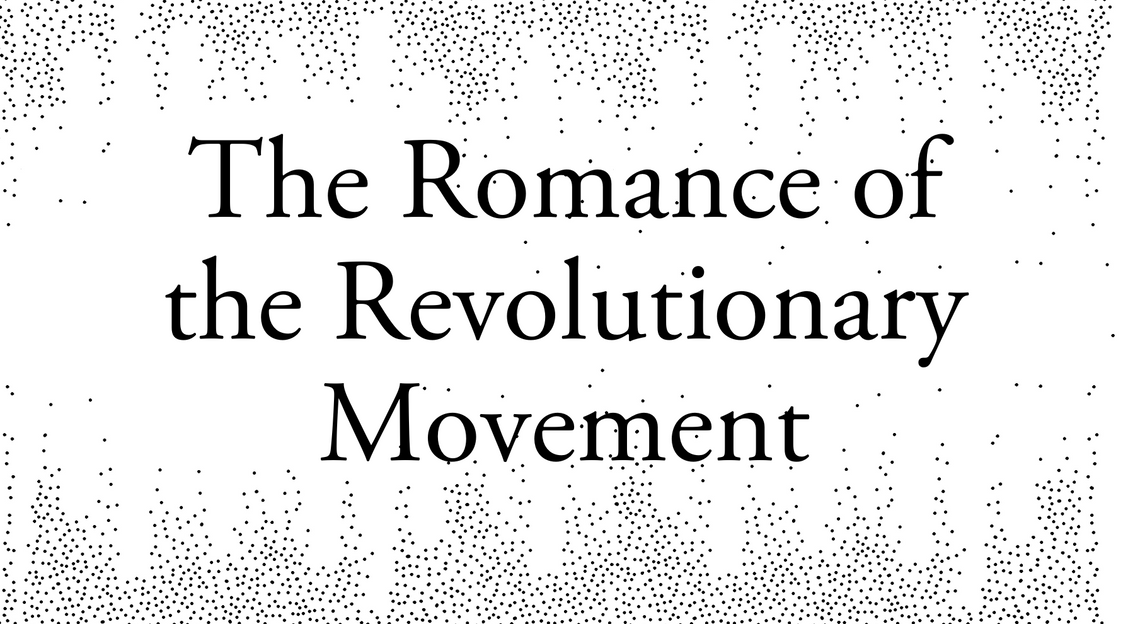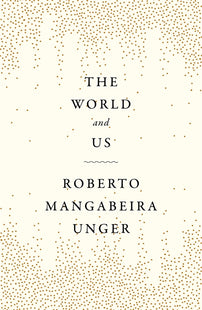The Romance of the Revolutionary Movement
Roberto Mangabeira Unger explores the political and personalist sides of the revolutionary movement of the past three centuries.

History is revelation. What it reveals is always ambiguous and contestable. Nevertheless, what history shows has particular significance for politics, given that the medium of politics is historical time. I write this during what I hope will be merely a counter-revolutionary interlude during a long revolutionary period in the history of mankind.
For the last three centuries humanity has been aroused by a revolutionary movement. This movement has had two sides: a political side associated with democracy, liberalism, and socialism, and a personalist side identified with what we can broadly describe as romanticism, especially the worldwide popular romantic culture.
The promise of the political side has been to overthrow or lighten the burdens of entrenched social hierarchy and division that inhibit the development of our practical capabilities and corrupt our relations with one another. The promise of the personalist side has been to deepen and elevate the experience of the ordinary man or woman, and to strengthen their sense of agency: their ability to imagine themselves as sharers in a larger life and as authors of their own empowerment.
These two sides of the revolutionary movement may seem to be inseparable. In fact, they have taken largely different directions. To the extent that the personalist side becomes disconnected from the political one, it risks becoming a realm of fantasy. Instead of the enhancement of agency, the outcome then is that the would-be agent learns to sing in his chains.
This revolutionary movement remains, even today, the leading project in the world: it commands the agenda of humanity. But if it is strong by virtue of its commanding influence, it is also weak because its adepts no longer know what its next steps should be on either its political or its personalist side. The chief expression of this weakness on the political side is the inability of institutionally conservative social democracy or social liberalism to address, much less to solve, the major problems of contemporary societies. The principal manifestation of the weakness on the personalist side is its disassociation from the political side and its consequent confinement to fantasies of escape and empowerment.
Since the late eighteenth century, the political side of this continuing but now interrupted revolution has been carried by the doctrines of democracy, liberalism, and socialism. It has proposed to rescue society from class and caste—entrenched social division and hierarchy— to lift ordinary men and women up, and to give them power. It has demanded that society be governed for the benefit and by the authority of the common people, and it has repudiated class prerogative.
Its adepts have disagreed, as liberals and socialists do, about the best way to organize an economy that serves the interests of the working-class majority and develops the productive powers of society. They have also differed over the kinds of equality that should be sought and the levels of inequality that should be tolerated, as well as over the role of the state in the direction of the economy and the moderation of inequality. But they have largely agreed on the centrality of the freedom of labor, the dignity of work, and the need to give all men and women the greatest possible opportunity to develop and exercise their talents.
Most fundamentally, they have embraced the idea that there is no elite by birth entitled to determine the direction of society, control the free work of free men and women, and hold the productive assets of society. Even those who believe that property is not a gift of the laws and has some natural form also insist that in the free order that they recommend assets will (ultimately) end up in the hands of their most efficient users, to the benefit of society as well as that of their owners.
They have disagreed about the political implications of the commitment to affirm the rule of the people. For some, the people rule only when the rights of minorities, beginning with political minorities, are protected and there can be an orderly alternation in power. For others, the political empowerment of the people must pass through a stage in which the putative representatives of the working-class majority hold power until the last remnants of class society have been eradicated and the state is secure against both foreign and domestic enemies.
Yet even these apologists of class and party dictatorship impose and exercise their dictatorship in the name of the people. And if their pretense is to be credible and effective, rather than an empty excuse, they must be able to show that it produces advantages for the many.
In no instance, amid all these variations — from the liberal-democratic to the social-authoritarian — may power be held or wielded by the representatives of an inherited class or caste order of society for the purpose of reproducing that order. And if someone says that it is exactly this that is happening under the disguise of liberal or popular democracy, then that claim becomes a challenge to the regime on its own terms: the terms on which its legitimacy depends.
We might think that this account of the political side of the revolutionary program is so inclusive and flexible that it excludes nothing and no one. In fact, however, it excludes almost all the regimes that have existed in world history prior to the present revolutionary period of the last several hundred years, with the partial exception of some city-states and stateless societies. It is only for us that the idea of lifting the grid of entrenched social hierarchy and division and of empowering the mass of ordinary men and women has come to seem the principle to which every regime must be loyal.
Once every form of legitimation appealing, as the ancient Indo-European formula did, to a natural and sacrosanct ordering of social life has been overturned, it cannot be reconstituted. The spell has been broken, and every enemy of those who hold power will have to claim that they know how to replace the sham with the real thing.
Now consider the personalist side of this revolution. Its chief vehicle has been romanticism: not just the high-cultural literary and artistic romanticism of the nineteenth and twentieth centuries in Europe but also and above all the worldwide popular romantic culture of today, conveyed by popular music, video, and film in their characteristic tropes and narratives.
The ideas and narratives of the high romantic culture of the nineteenth and twentieth centuries connect to the medieval romance and, through it, to the themes of love and infinity in Christianity. The basic elements of the romantic narrative are the true love and the ennobling quest. At every moment of its ancient and modern history, romanticism had trouble coming to terms with structure, routine, and repetition; that is to say, with what occupies most of any human life.
The existence that it envisions exists only in those interludes when the romantic pilgrim or adventurer loosens the grip of routine on experience. But this true life is condemned to be exceptional and momentary. The romantic protagonist seeks the hand of the beloved, but the routines of married life defy the romantic conventions; they remain literally unimaginable.
The romantic seeks to distinguish himself by a work that raises him above the smallness of life and demonstrates that he is worthy of the beloved. The identification of the ennobling quest should come from within him and express his freedom from subservience to convention. In fact, it depends on common opinion. The result is to ensnare the protagonist in ambivalence toward the society whose recognition he both craves and pretends to despise.
The romanticism of the late nineteenth century and the modernism of the twentieth century came to doubt the possibility of both the true love and the ennobling quest. But they had nothing to put in their place, other than the worship of literature and art itself—a form of self-deification that can never satisfy anyone who has taken the Christian-romantic doctrine of love and infinity to heart.
The spirit of early romanticism has lived on in the global popular romantic culture of the present time. Its weakness is its sentimentality. The distinctive mark of the sentimental is its formulaic character: the gospel of anti-repetition is itself repetitious. It works with a small number of elements combined in familiar ways. The significance of its formulaic character is to diminish its power to generate the new and to lead from one state of affairs to another.
The shallowness, circularity, and relative sterility of much of the popular romantic culture cannot conceal the sublime message that it has carried throughout the world—into every slum, village, and shack. The ordinary man or woman is not so ordinary after all; he, she, is appointed to rise to a higher form of life: to find and give personal love against all the barriers imposed by the restraints of class and culture; to share in the subjective experience, if not the material opportunities, of the monied and educated classes; and to live life as an adventure in the making of a self, against the blindness of fortune and the injustices of society.
The message is that of our share in divine transcendence, of the supremacy of love over altruism and all else, and of the ways in which our ability to give ourselves to one another and to reach beyond the circumstance in which each of us finds himself are tied together. This is the message that romanticism, in both its high and its popular versions, took over from the Semitic monotheisms and often expressed in ways at once more powerful and more faithful to the inspiration of those religions than anything that we find in the history of religious orthodoxy.
Given this initial account of the political and moral orientation of this revolution, we can now look both back and forward and ask the only question that matters: What are the next steps of this world revolution on both its political and its personalist sides? If it has no next steps, or if we cannot define them, it must wither and stop. The counter-revolutionary interlude will not then be an interlude; it will be the future.
— An edited excerpt from The World and Us by Roberto Mangabeira Unger.
[book-strip index="1" style="buy"]
